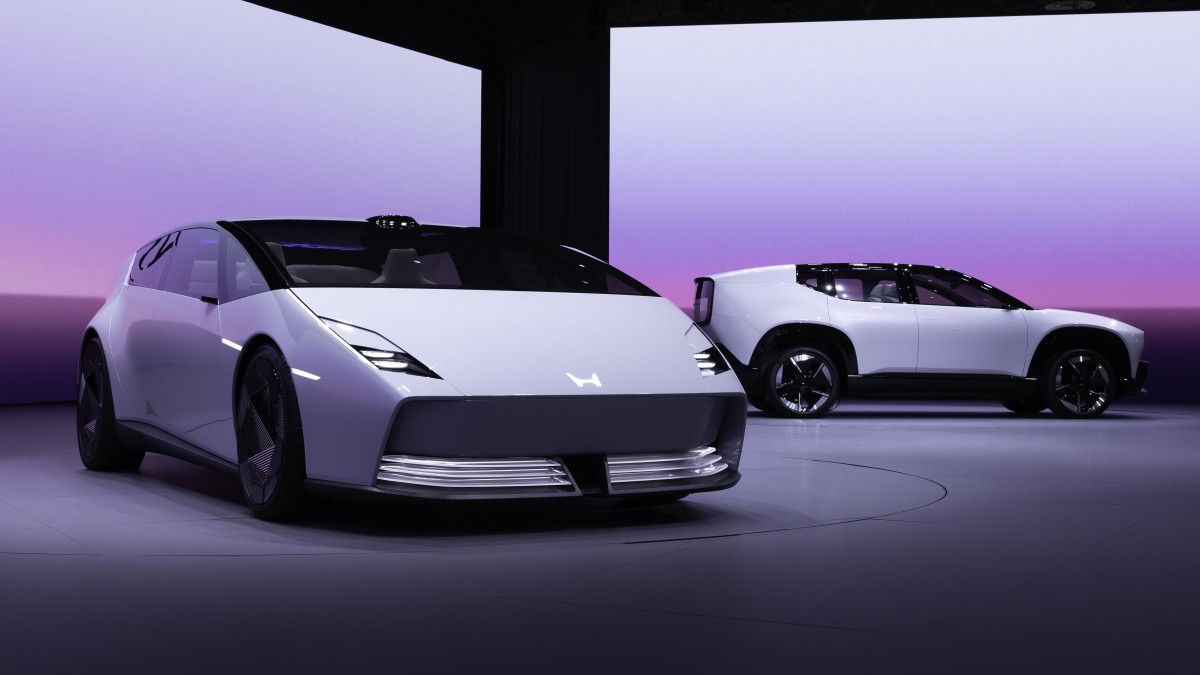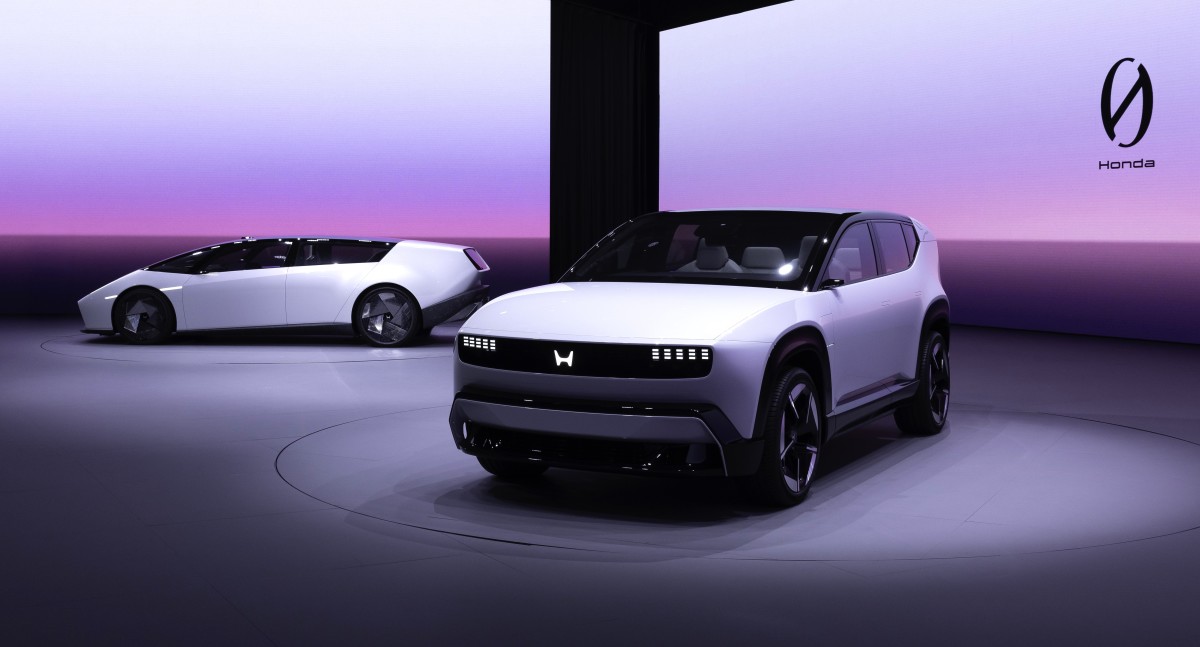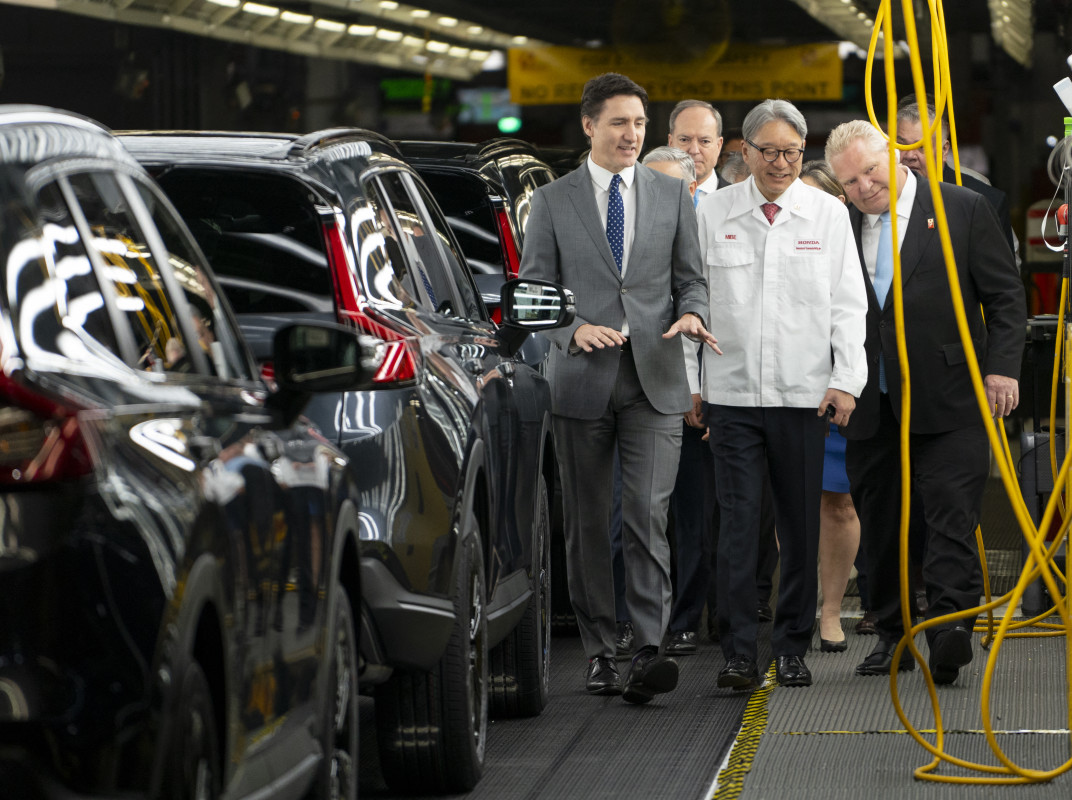
In a speech at the Republican National Convention in July 2024, the current President-Elect, Donald J. Trump, vowed to reverse or repeal many of the policies associated with the incumbent President, Joe Biden.
One of these promises was to end what he called Biden's electric vehicle ‘mandate' — a term he uses to refer to a series of tightened EPA regulations that place extremely tight limits on cars' tailpipe pollution — which he said would lead to the downfall of the U.S. auto industry.
💰💸 Don’t miss the move: SIGN UP for TheStreet’s FREE Daily newsletter 💰💸
"I will end the electric vehicle mandate on day one," Trump said during his speech to raucous applause. "Thereby saving the U.S. auto industry from complete obliteration, which is happening right now and saving U.S. customers thousands and thousands of dollars per car."
Although he toned down his public-facing rhetoric in spite of continued support from Tesla CEO Elon Musk, policy teasers from Trump and his transition team are not positive signals for Japanese automaker Honda (HMC) .

Honda
Honda may take a step back from EVs for U.S., says exec.
Despite showing off prototype models of its upcoming "0 series" electric vehicles, a senior Honda executive expressed caution about rolling out new EVs due to the political climate and policy in the U.S.
According to a report from Reuters on the floor of the Consumer Electronics Show (CES) in Las Vegas on Jan. 7, Honda Executive Vice President Noriya Kaihara expressed that the automaker may be cautious about starting production of new EVs, citing uncertainty about the incoming President's industrial policy come Jan. 20.
"Because of Trump's initiatives, we might be very careful how we would start production [of upcoming EVs]," Kaihara said.
Additionally, he noted that the automaker will be cautious regarding its plans for a sprawling battery plant in Canada, aiming to be "mindful" of EV market trends and government regulations.
Trump has not withdrawn his previous threats of 25% tariffs on goods from Mexico and Canada.

Honda [and other automakers] spent a lot to adapt to current EV policies.
Automakers, including General Motors, Ford, and even Hyundai, have poured millions into investments supporting the growth of the electric vehicle segment, whether it is building new battery plants or expanding or adapting production lines to prepare its factories for a swath of battery-powered motors.
Despite currently having one EV in its U.S. lineup, Honda also made landmark investments to support EV production growth, albeit in a tricky place marred by policies teased by the incoming president himself.
Related: Honda is betting big on North American EV manufacturing
At an April 25, 2024 press conference at Honda's Alliston, Ontario, Canada car factory, Honda CEO Toshihiro Mibe, Canadian Prime Minister Justin Trudeau, and Ontario Premier Doug Ford announced that Honda will invest the equivalent of $11 billion in building a "comprehensive electric vehicle supply chain" for Honda within Ontario.
Much of the $11 billion plan is an "innovative and environmentally responsible Honda EV plant," as well as a battery plant within the area of its current Alliston, Ontario plant.
Honda said that the expansion will add a minimum of 1,000 new employees in addition to the 4,200 employees already at its current plants in Ontario, and will create additional jobs, including construction jobs.
Though the facility's opening date is 2028, the automaker expects to produce 240,000 EVs per year and, when all its facilities are fully operational, have a capacity of 36 gigawatt hours (GWh) per year.
More Business of EVs:
- Porsche walks back EVs - people still want gas cars
- Donald Trump’s EV stance fuels sales rush for dealers
- Volkswagen's massive issue is a privacy nightmare for EV owners
According to the provisions of the Inflation Reduction Act (IRA), eligible vehicles for the $7,500 tax credit are required to have its final assembly to take place in North America; including the U.S., Canada and Mexico. Additionally, eligible vehicles must not have any battery components made by a "foreign entity of concern," such as China, Russia, Iran, or North Korea (DPRK).
Currently, Honda's lone electric offering is the Prologue SUV, which is made in Mexico under a partnership with General Motors. As of the time of writing, it is eligible for a $7,500 IRA tax credit that can be used at the time of purchase.
Previously, Honda has revealed plans to make EVs in the U.S.
In September 2024, Honda said in a statement that a future Acura EV model will be the first EV made at its Marysville, Ohio factory. The Marysville plant is one leg of Honda's Ohio "EV hub," a project that involves the retooling of Honda's Marysville Auto Plant, its East Liberty Auto Plant and its Anna Engine Plant for EV and EV parts production.
Already, future EV production is cutting into its gas-powered car business. In a recent statement, a Honda spokesperson told Motor1 that Honda's decreased production of the Accord is due to preparation for EV production at its Marysville, Ohio factory later this year.
"We anticipated a decrease in Accord volume last year with this line consolidation taking place at Marysville Auto Plant," the Honda spokesperson said.
The Honda Motor Company is listed on the New York Stock Exchange under the ticker HMC.
Related: Veteran fund manager issues dire S&P 500 warning for 2025







